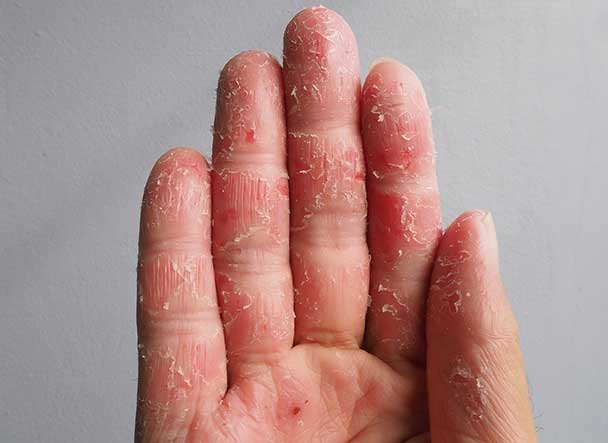Eczema
Your Trusted Destination for Eczema or Seborrheic Dermatitis Treatment in Hyderabad
If you are struggling with eczema or seborrheic dermatitis, finding the right treatment and a trusted medical professional is crucial for effective management and relief. Look no further than Experts Skin and Hair Clinic in Hyderabad. With a team of experienced dermatologists and a holistic approach to skin care, we are dedicated to providing the best possible treatment for eczema and seborrheic dermatitis, ensuring long-term relief and improved quality of life.
Eczema, also known as atopic dermatitis, is a common skin condition that affects millions of people worldwide. It is characterized by inflamed, itchy, and dry skin patches that can appear on various parts of the body. Eczema is often chronic and can significantly impact a person's quality of life.

- Combination of genetic and environmental factors. Research has shown that individuals with a family history of eczema are more likely to develop the condition themselves. Additionally, certain environmental triggers such as allergens (like dust mites, pet dander, or pollen), irritants (such as harsh soaps or detergents), and extreme temperatures can worsen symptoms or trigger flare-ups.
- Another factor that plays a role in eczema is a dysfunction in the immune system. People with eczema tend to have an overactive immune response to certain triggers, which leads to inflammation in the skin. This immune dysfunction can be influenced by factors like stress, hormonal changes, and underlying health conditions
Our clinic offers a range of advanced treatment options for eczema, including:
Topical Medications
Systemic Medications
FAQs
Frequently Asked Questions
Several factors can trigger an eczema flare-up, including:
- Allergens
- Irritants
- Climate
- Stress
- Hormonal changes
- Microbes
Certain foods have been known to trigger eczema flare-ups in some individuals. While the relationship between diet and eczema is complex and varies from person to person, there are common food triggers that have been identified.
One of the most common food triggers for eczema is dairy products, particularly cow's milk. Other common culprits include eggs, soy, wheat, nuts, and shellfish. These foods contain proteins that can potentially irritate the skin and exacerbate eczema symptoms.
Eczema is not contagious. It cannot be spread through person-to-person contact. This means that you do not need to worry about contracting eczema from someone else or spreading it to others.
Although eczema can trigger an immune system overreaction, it is not officially considered an autoimmune condition. Scientists continue to conduct research in order to gain a deeper understanding of the relationship between eczema and the immune system.


